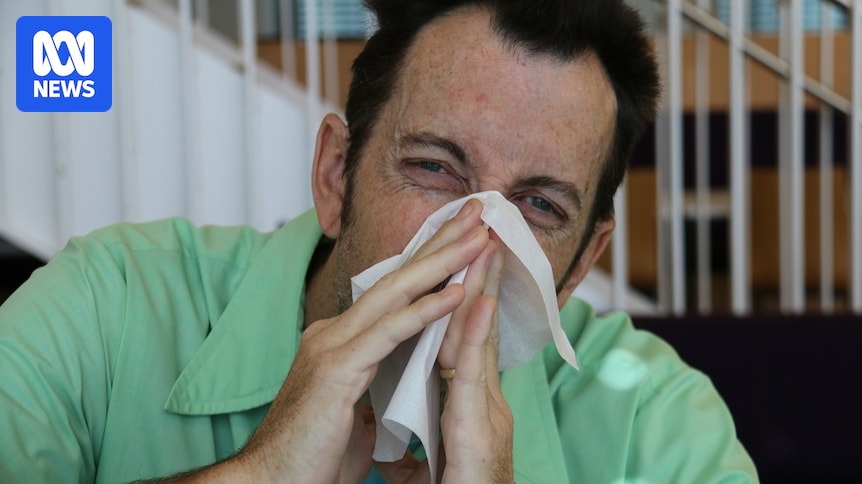Early & Severe Flu Season Hits Australia: GP Warning
Editor’s Note: Australia is experiencing an early and severe flu season, prompting urgent warnings from GPs.
Why This Matters: Australia's Unprecedented Flu Season
Australia is facing an unusually intense flu season, arriving earlier and with greater severity than anticipated. This is concerning for several reasons: increased strain on healthcare systems, potential for widespread illness and absenteeism, and the risk of complications, particularly for vulnerable populations. This article will explore the key aspects of this developing health crisis, offering insights into the current situation and practical advice.
Key Takeaways
| Point | Summary |
|---|---|
| Early Onset | Flu season arrived significantly earlier than usual. |
| Increased Severity | Higher-than-expected number of cases and hospitalizations reported. |
| Strain on Healthcare | Hospitals and GP clinics facing increased pressure. |
| Vulnerable Populations | Elderly, young children, and those with pre-existing conditions at higher risk. |
| Prevention Measures | Vaccination, hygiene practices emphasized as crucial preventative strategies. |
Early & Severe Flu Season Hits Australia
This year's flu season in Australia is proving to be exceptionally challenging. The early onset and rapid escalation of cases are placing significant pressure on healthcare providers and highlighting the importance of preventative measures. The unprecedented nature of this season warrants immediate attention and proactive responses.
Key Aspects of the Situation
- Early Onset: The flu season commenced much earlier than predicted, catching health authorities and the public off guard.
- Increased Severity: The number of confirmed flu cases and hospital admissions are substantially higher than in previous years. Specific influenza strains contributing to the severity are being actively monitored by health officials.
- Strain on Healthcare Systems: Hospitals across the country are experiencing increased patient loads, potentially leading to longer wait times and increased pressure on medical staff. General practitioners (GPs) are also reporting an overwhelming number of consultations.
- Vulnerable Populations: As always, the elderly, young children, and individuals with underlying health conditions are at increased risk of severe complications from influenza.
Detailed Analysis: The Impact of an Early and Severe Flu Season
The early and severe nature of this flu season has several critical implications:
- Economic Impact: Widespread illness leads to increased absenteeism from work and school, impacting productivity and economic output.
- Public Health Concerns: The rapid spread of the virus necessitates swift and effective public health interventions to mitigate its impact.
- Healthcare System Resilience: The strain on healthcare resources raises questions about the preparedness and resilience of the system to handle future outbreaks.
Interactive Element: Understanding the Flu Virus
The Flu Virus: Transmission, Symptoms, and Prevention
The influenza virus spreads primarily through respiratory droplets produced when an infected person coughs or sneezes. Symptoms typically include fever, cough, sore throat, muscle aches, and fatigue. Effective prevention strategies include:
- Vaccination: The annual flu vaccine is the most effective way to protect against influenza.
- Hygiene Practices: Frequent handwashing, covering coughs and sneezes, and avoiding close contact with sick individuals are crucial.
Summary: The Importance of Proactive Measures
Understanding the flu virus's transmission and symptoms is essential for effective prevention. By adopting proactive measures, individuals can minimize their risk of infection and contribute to controlling the spread of the virus within the community.
People Also Ask (NLP-Friendly Answers)
Q1: What is the current flu situation in Australia?
A: Australia is experiencing an unusually early and severe flu season with significantly higher than normal case numbers and hospitalizations.
Q2: Why is this flu season so severe?
A: The reasons behind the severity are still being investigated, but factors may include a weaker immune response post-pandemic, new virus strains, and less social distancing.
Q3: How can I protect myself from the flu?
A: Get the flu vaccine, practice good hygiene (frequent handwashing), cover coughs and sneezes, and avoid close contact with sick individuals.
Q4: What are the symptoms of the flu?
A: Common symptoms include fever, cough, sore throat, muscle aches, fatigue, and headaches.
Q5: What should I do if I think I have the flu?
A: Consult your GP, rest, stay hydrated, and follow their advice regarding treatment and isolation.
Practical Tips for Preventing the Flu
Introduction: Taking proactive steps to prevent the flu is crucial during this severe season. These simple yet effective tips can significantly reduce your risk.
Tips:
- Get Vaccinated: The flu vaccine is your first line of defense.
- Practice Good Hygiene: Wash your hands frequently with soap and water.
- Cover Your Cough: Use a tissue or your elbow to cover your mouth and nose.
- Avoid Close Contact: Stay away from sick individuals as much as possible.
- Stay Home When Sick: Avoid spreading the virus to others.
- Boost Immunity: Eat a healthy diet, get enough sleep, and manage stress.
- Clean and Disinfect: Regularly clean and disinfect frequently touched surfaces.
- Consult Your GP: Seek medical attention if you experience severe symptoms.
Summary: Following these practical tips will help safeguard your health and contribute to reducing the spread of influenza within your community.
Transition: By understanding the severity of the situation and taking preventative measures, we can collectively work towards mitigating the impact of this unprecedented flu season.
Summary (Zusammenfassung)
Australia is facing an exceptionally challenging flu season, characterized by an early onset, increased severity, and significant strain on healthcare systems. Prevention through vaccination and good hygiene practices remains paramount.
Closing Message (Schlussbotschaft)
This early and severe flu season underscores the importance of preparedness and proactive health measures. By staying informed and taking preventative steps, we can collectively navigate this challenging time. Share this information to help protect your community.
Call to Action (CTA)
Stay informed about the latest health advisories from your local health authorities. Share this article to raise awareness and encourage others to take preventative measures. [Link to relevant health authority website]

